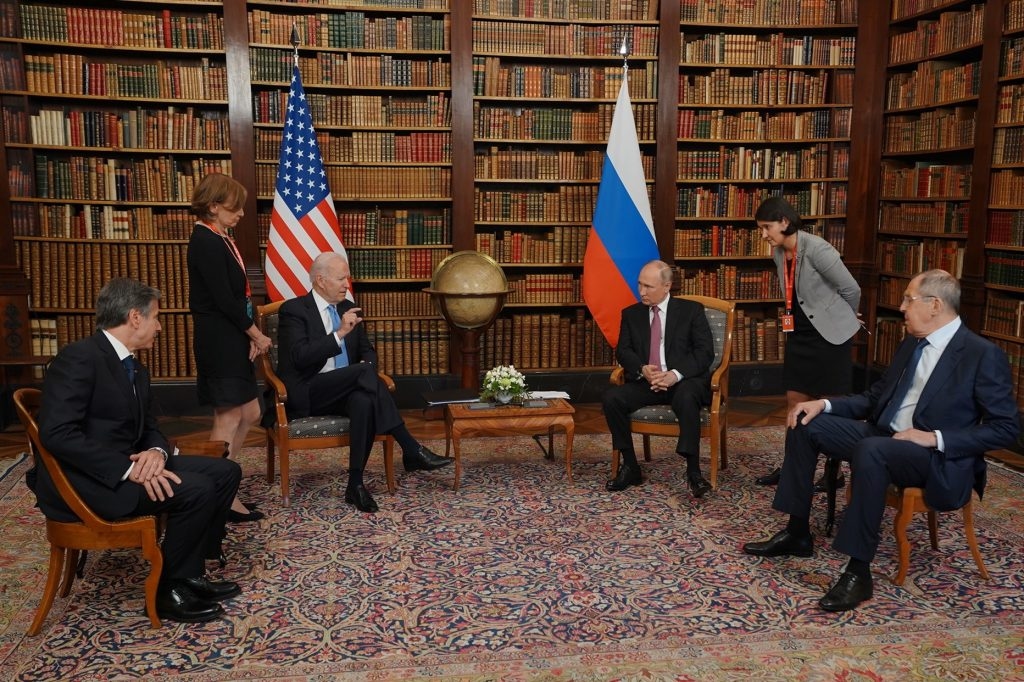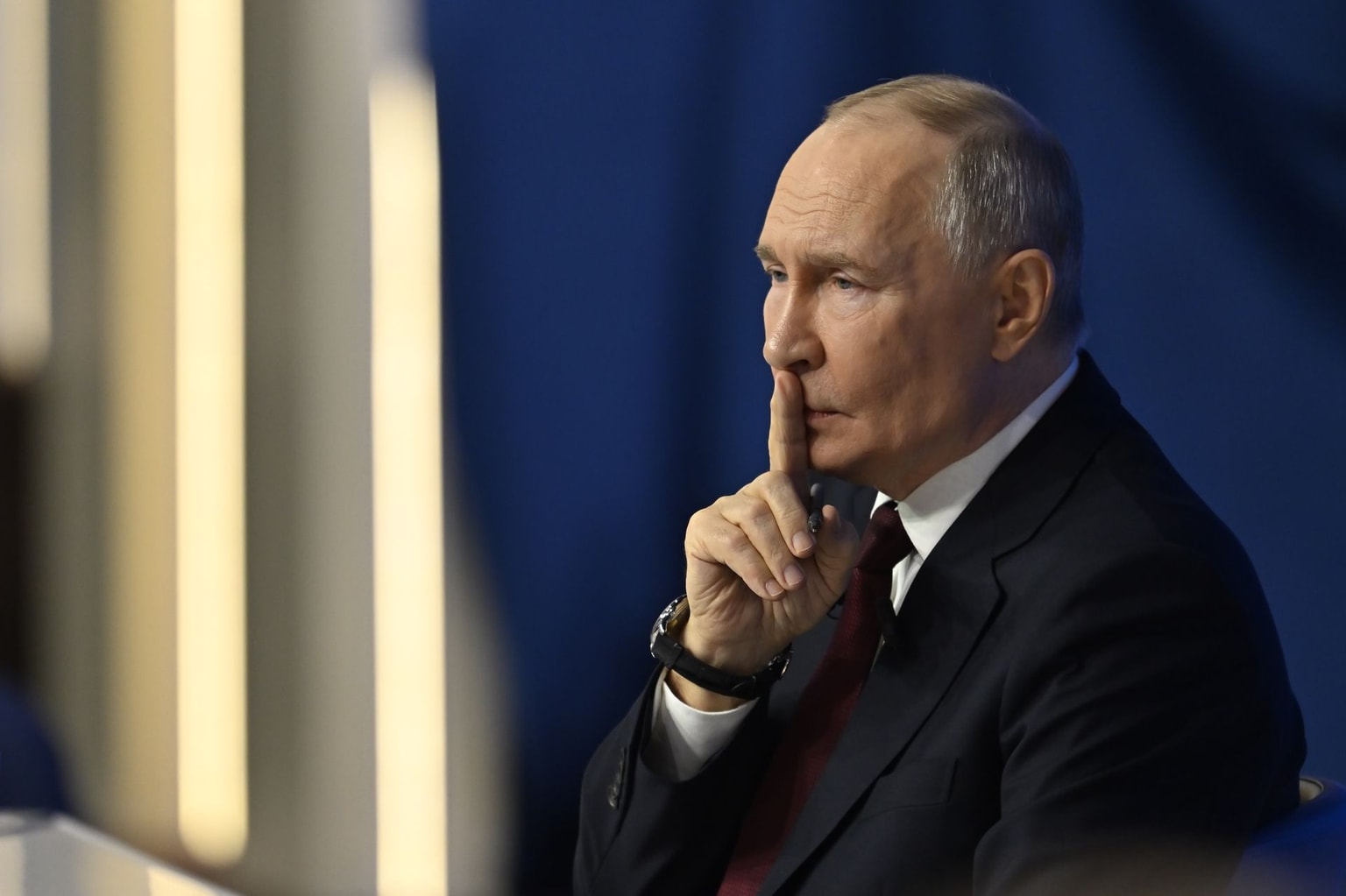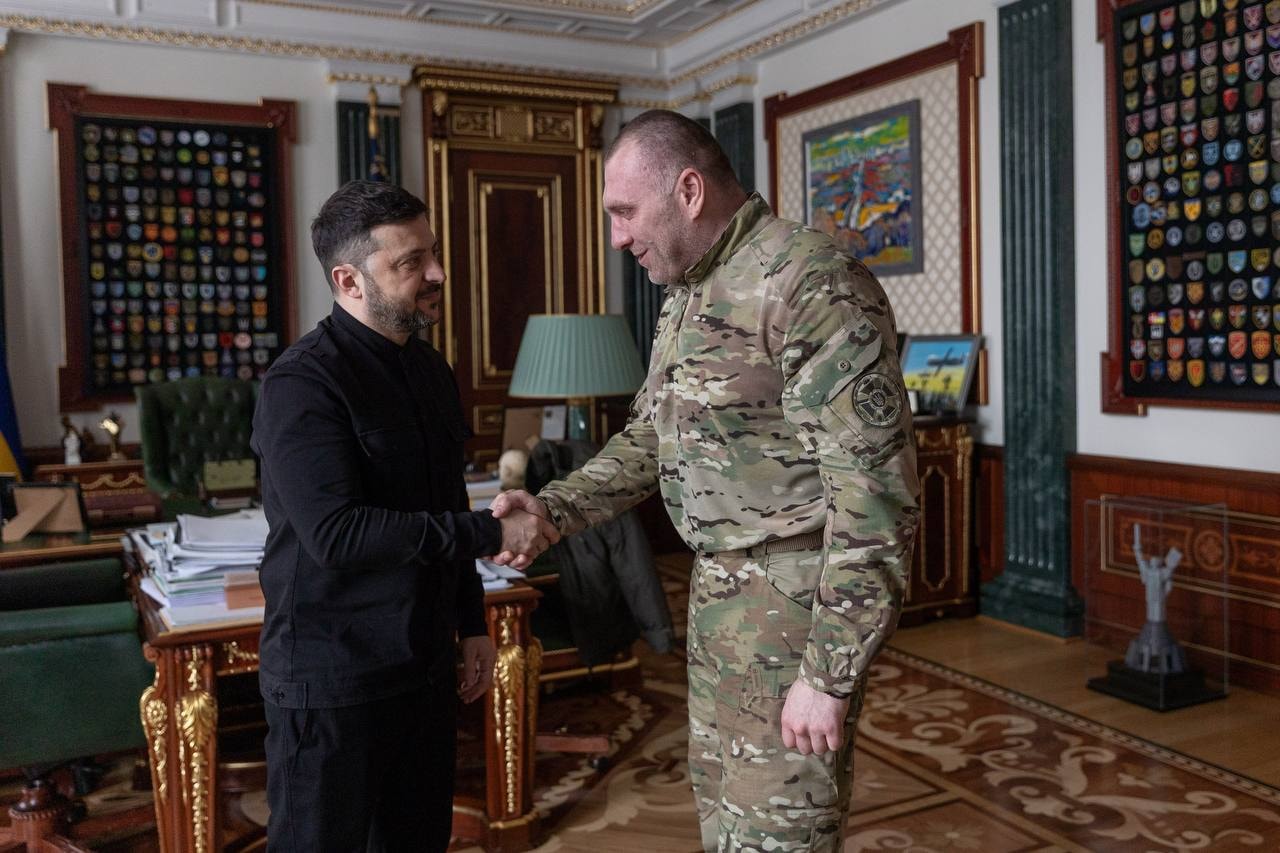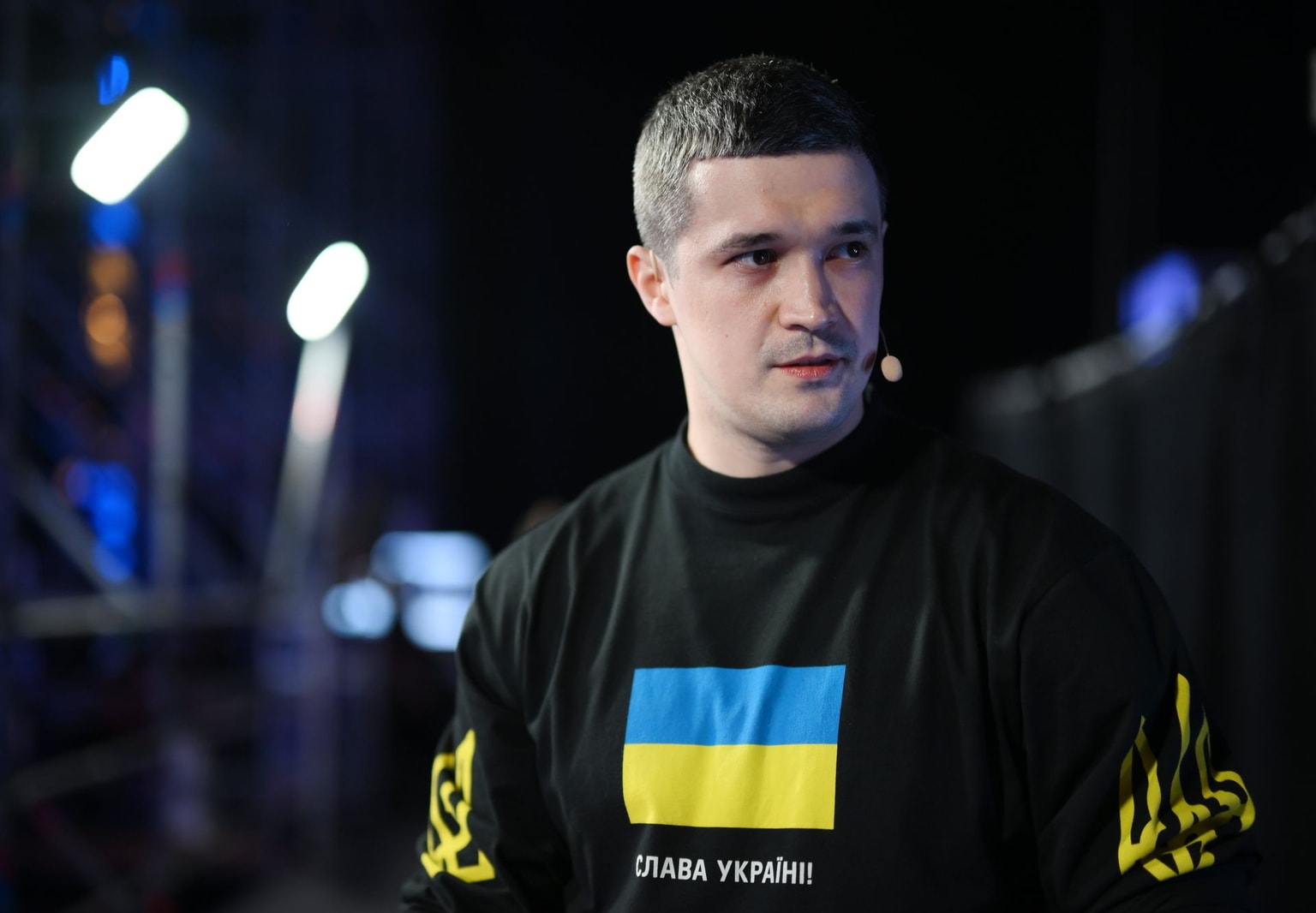Ukraine was repeatedly bartered by great powers in the past. Will it happen again?

Ukraine, a European nation of 41 million, has been at the mercy of geopolitical forces far more than most similarly sized countries on the continent.
The country is currently making global headlines due to Russia’s build-up of 122,000 troops on its borders, seemingly ready to launch an invasion.
Russian President Vladimir Putin has thus far refused to negotiate with his Ukrainian counterpart Volodymyr Zelensky and instead hopes to cut a deal with Ukraine’s Western allies over the country’s head.
On Dec. 17, Russia’s foreign ministry publicly presented two draft agreements to the U.S. and NATO that would forbid them from almost all military cooperation with Ukraine and a number of other eastern European countries. The document will almost certainly be rejected, but it gave a worrying insight into Putin’s negotiating strategy.
While Ukrainians assumed that their Western partners would include them in negotiations over the country’s future, many were alarmed by an Associated Press story on Dec. 9 that suggested otherwise.
Published following a call between U.S. President Joe Biden and Putin, the article quoted anonymous White House officials saying that the U.S. was considering asking Ukraine to “cede a measure of autonomy” to the occupied Donbas, a measure no Ukrainian government would voluntarily accept. The White House subsequently denied that it would pressure Ukraine to “cede land” to Russia.
But Ukraine had reason to worry, as its fate had been decided by external powers several times before.
This is by no means a complete list: instead, it picks out the most egregious bargains that changed Ukrainian history.
Post-World War I deals
Ukraine saw heavy fighting on its soil during World War I. The country’s western regions suffered the most. According to historian Orest Subtelny, 3.5 million Ukrainians served in the Russian Army over the course of the war, with another 250,000 fighting for the Austro-Hungarian Empire.
However, the country’s fate would subsequently be dictated to it by foreign powers at two international treaties, Versailles and Riga, following the Brest-Litovsk Treaty that gave Ukraine de-jure independence.
The Austro-Hungarian, German, and Russian empires fought bitterly on Ukrainian land. The three-week battle for Halychyna in 1914 saw both sides field a million men apiece. The death count was in the six figures.
In December 1917, Russia signed an armistice with the Central Powers as the country descended into civil war after the Bolshevik revolution. The following month, the Ukrainian People’s Republic (UNR) declared independence but was immediately invaded by the Red Army.
The Bolsheviks still had to negotiate a peace treaty with Germany and Austro-Hungary. The terms were agreed on at Brest-Litovsk (now Brest, Belarus) in 1918, and they were tough on Russia, which agreed to give up Ukraine and the Baltics, along with a raft of other concessions.
While this might seem like a good deal for Ukraine, it wasn’t. The old UNR government returned to head the new state, but the Germans helped overthrow it in favor of a puppet regime run by Pavlo Skoropadsky. This was statehood without sovereignty, ersatz independence.
What Ukraine got from Brest-Litovsk it lost at Versailles in 1919. While this treaty text did not explicitly discuss Ukraine, according to historian Yaroslav Hrytsak the “Versailles system” agreed on by the victorious powers at the Paris Peace Conference allowed Russia, which was not present at the talks, to retake Ukraine without objection.
“Ukrainians often put their defeat (in 1919) down to a lack of (military) might. That was certainly lacking, but the decisive factor was geopolitics,” Hrytsak told the Kyiv Independent.
All that was left to be decided was for warring Russia and Poland to divide up Ukraine at the Peace of Riga in 1921. Russia got the lion’s share while Poland got Halychyna and Volyn.
The puppet Ukrainian Soviet Republic was officially a signatory, but all negotiations were undertaken on its behalf by Moscow and non-communist Ukrainian representation was excluded.
Chicken Kyiv
In 1991, the Soviet Union was falling apart. The centrally managed supply chains collapsed, and the Politburo was too stunned by its defeat in Afghanistan to suppress the independence movements forming throughout its constituent republics.
Against this backdrop, U.S. President George H. W. Bush flew into Kyiv and gave a speech to the Ukrainian Soviet Republic’s parliament on Aug. 1, 1991. In a moment of staggering tone-deafness, Bush warned the country, which was on the brink of declaring independence, not to do so.
“Freedom is not the same as independence. Americans will not support those who seek independence in order to replace a far-off tyranny with a local despotism. They will not aid those who promote a suicidal nationalism based upon ethnic hatred,” he told the assembled lawmakers.
Hrytsak says that British Prime Minister Margaret Thatcher expressed similar sentiments when she visited Kyiv in 1990. The caution of both leaders can be explained by two concerns they had over an independent Ukraine.
“Firstly, Ukraine would become a nuclear power, which they feared. Secondly, the West still saw Ukraine as a dangerous country with a history of antisemitic pogroms which (they thought) could repeat,” Hrytsak explained.
Bush’s words outraged Ukrainians, as well as many American commentators. New York Times columnist William Safire labeled it the “Chicken Kyiv” speech, mocking Bush’s weakness in failing to support Ukraine. The name stuck and is now remembered as one of the former president’s worst foreign policy decisions.
Safire wrote at the time that the speech was a “colossal misjudgment,” and he was proved right three weeks later as Ukraine declared independence on Aug. 24. In December 1991, 92% of voters approved independence in a nationwide referendum, showing just how out of touch Bush was.
Budapest memorandum
The 1994 deal that saw Ukraine decommission its vast inherited nuclear arsenal in return for assurances of territorial integrity took twenty years to reach the heights of its infamy.
After Ukraine declared independence, it found itself in possession of the world’s third-largest nuclear arsenal. There was one caveat: All the launch keys were in Moscow, and Ukraine had no way of taking operational control of the ballistic missiles on its territory.
Throughout the first years of independence, the Ukrainian army allegedly tried without success to “unblock” the nuclear warheads so that it would have control over them.
Russian State Duma advisor Alexander Pikayev wrote in a 1994 academic paper that Ukraine had the capacity to build new missiles and house them in existing silos, but that the country’s government could not fund such a venture.
The nuclear warheads were driving not only tensions with Russia, which wanted to retain control of the weapons, but also isolation from the West, which was unsure what to expect from a newly independent Ukraine.
“The pressure (to disarm) was enormous and came first and foremost from the U.S.,” said Hrytsak.
As a result, Ukraine, along with Belarus and Kazakhstan, signed the Budapest Memorandum on Security Guarantees in December 1994, whereby all three nations agreed to destroy their Soviet-era nuclear weapons. In exchange, Russia, the U.S., and the U.K. promised to refrain from the use of force or economic pressure against the countries and to respect their territorial integrity.
While the agreement improved Ukraine’s relations with the West and made it one of the largest recipients of U.S. foreign aid in the 1990s, it came back to haunt the country in 2014, when Russia invaded Crimea and parts of the Donbas.
Russia claimed that the treaty was invalidated by the ousting of autocratic, pro-Kremlin President Viktor Yanukovych. While the U.K. and U.S. condemned and economically sanctioned Russia, Ukraine had to wait years to get any lethal weapons from them.
The country was left with no nuclear deterrent and a worthless piece of paper.

Present day
According to Hrytsak, after the 2004 Orange Revolution, Ukraine gained reasonable geopolitical standing for the first time in its history. This was then boosted by the 2014 EuroMaidan Revolution, after which the country finally had somewhat reliable international partners in Europe and the U.S.
“There was a radical geopolitical change. At last, the Ukrainian question became important to the West, and they began to provide support.”
France and Germany continue to insist on negotiating the future of the Donbas in the Normandy format, which includes them, Ukraine and Russia. The U.S. has expressed its desire to join the format, but Russia has rejected this.
Since 2014, a crucial evolution can be observed, separating the current situation from the historic incidents outlined above. Moscow still wants to barter over Ukraine with a powerful counterpart, but the West has so far been unwilling to engage, insisting that Ukraine must be part of the conversation.
“There is no certainty here… Ukraine has some support, but this support may be insufficient,” Hrytsak said
There is a risk that Western powers will weaken in their resolve over time, particularly European countries that rely heavily on Russian fossil fuels.
Gas supplies, and in particular the Kremlin’s Nord Stream 2 pipeline, might be the key factor in negotiations about Ukraine.
An addition to the existing Nord Stream project which has operated since 2011, Nord Stream 2 will double the capacity of the undersea pipeline from Russia to Germany under the Baltic Sea. This will rob Ukraine of transit fees and a major deterrent against further Russian aggression.
Most Russian gas exports to Europe used to go through Ukraine. By 2020, that had dropped to 32%, and could now fall to zero if Nord Stream 2 is approved.
Construction was halted in 2020 by tough U.S. sanctions on the companies involved in the project, but the incoming Biden administration waived the harshest of those in a July 2021 deal with Germany, effectively giving a green light to the pipeline. Ukraine was not consulted on this decision.
The project has not yet been certified for use, a delay officially caused by a breach of European energy law but with the Russia-Ukraine tensions also “a factor,” according to Germany’s new anti-Nord Stream 2 Foreign Minister Annalena Baerbock.
However, as wholesale gas prices soared by over 300% this year taking Europe to the brink of a socio-economic crisis, the situation might make it tougher than ever to reject the pipeline, giving Russia the leverage in negotiations about Ukraine.
And then Kyiv, as happened many times in the past, may yet again find itself on its own.









